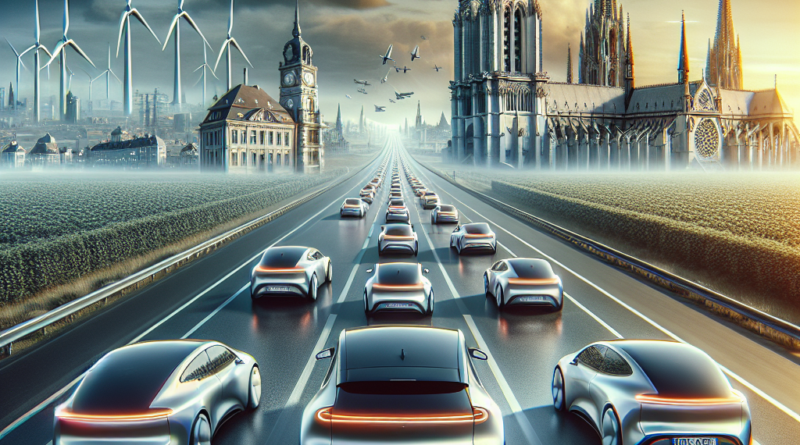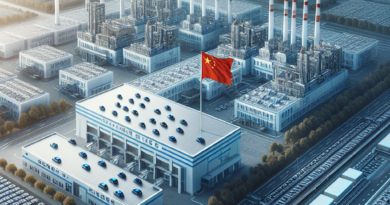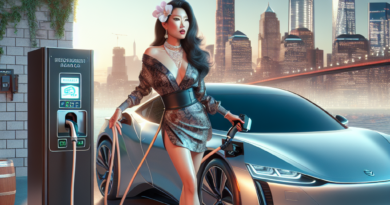Chinese Electric Car Companies Set to Invade Europe
The Growing Presence of Chinese Electric Vehicle Companies in Europe
The automotive industry is undergoing a revolution, with Europe potentially facing an invasion of Chinese electric vehicle companies on its territory.
The European Union’s announcement of tariffs on electrified cars Made in China up to 48% is prompting a new generation of Chinese EV manufacturers to take action to avoid losing market share due to the tariffs.
To mitigate the impact of these tariffs, Chinese companies are increasing collaboration with the European industry to have their cars considered as locally produced, rather than imports.
Failure to do so could lead to Chinese electric vehicles becoming significantly more expensive for consumers, rendering them unprofitable.
In the midst of intense trade tensions between Europe and China, the unfair competition posed by Chinese electric cars complicates the industrial revival of the old continent.
The risk of a “dragon invasion” of companies is becoming increasingly real.
The Chinese Invasion of Europe with Electric Vehicle Companies
Chinese electric automakers are expanding into Europe to offset the impact of tariffs aimed at weakening their price advantage over struggling traditional manufacturers in the region.
According to experts at Bloomberg, the arrival of Chinese EV manufacturers on European soil represents a threat to EU automotive giants, forcing them to form partnerships and make room for new rivals to adapt to weak global sales growth.
Recent projects include the Omoda E5, produced by Chinese Chery Automobile Co.
in Barcelona through a partnership with Ebro-EV Motors.
Leapmotor’s T03 city cars are being assembled in Poland in a factory owned by Jeep and Fiat Stellantis NV.
Additionally, BYD Co.
has announced plans for a factory in Hungary, with another on the horizon in Turkey, and Zeekr is evaluating production sites in Europe under its parent company, Geely.
Chery aims to start production in Barcelona at the former Nissan Motor Co.
factory by the end of the year, with plans to produce 150,000 cars annually in Spain by 2029.
SAIC is in talks with the Spanish government to establish its first production site in Europe.
Volvo Car AB, owned by Geely, is accelerating plans to produce its new model in Belgium and China.
In Poland, Leapmotor has started assembling the T03 electric car at a Stellantis-owned factory just six months after announcing the partnership.
Europe Caught in the Chinese Trap of Electric Vehicles?
Some governments are closely monitoring attempts to bring Chinese cars into the EU.
In June, the Italian antitrust authority fined DR Automobiles €6 million for falsely labeling Chinese manufacturers’ vehicles as made in Italy.
Authorities are concerned about preserving jobs and monitoring their domestic markets amid the expansion of Chinese companies in Europe.
The European Commission is still determining how the new tariffs will apply to joint ventures not covered in its anti-subsidy investigation.
While discussions could prevent additional tariffs before they become permanent in November, China has initiated a retaliation investigation on alleged pork dumping from the EU.
As part of a broader global trade dispute, the US has imposed tariffs on Chinese electric vehicle imports, with tariffs potentially exceeding 100%.
The EU is navigating a more complex situation and needs affordable electric vehicles to achieve its 2035 goal of phasing out combustion engine sales.
Despite Chinese manufacturers capturing less than 10% of the market share in Europe, the region remains a lucrative outlet for companies like Nio Inc.
and Xpeng Inc.
Chinese EV companies require an alternative solution to European tariffs to protect profits and avoid price increases.
BloombergNEF estimates that the profit margin for SAIC’s MG4 EV could plummet from 25% to just 1%, unless prices are raised or battery costs continue to decline – an area where Chinese companies are outperforming their EU counterparts.
The automotive revolution in Europe – and globally – is just beginning.




